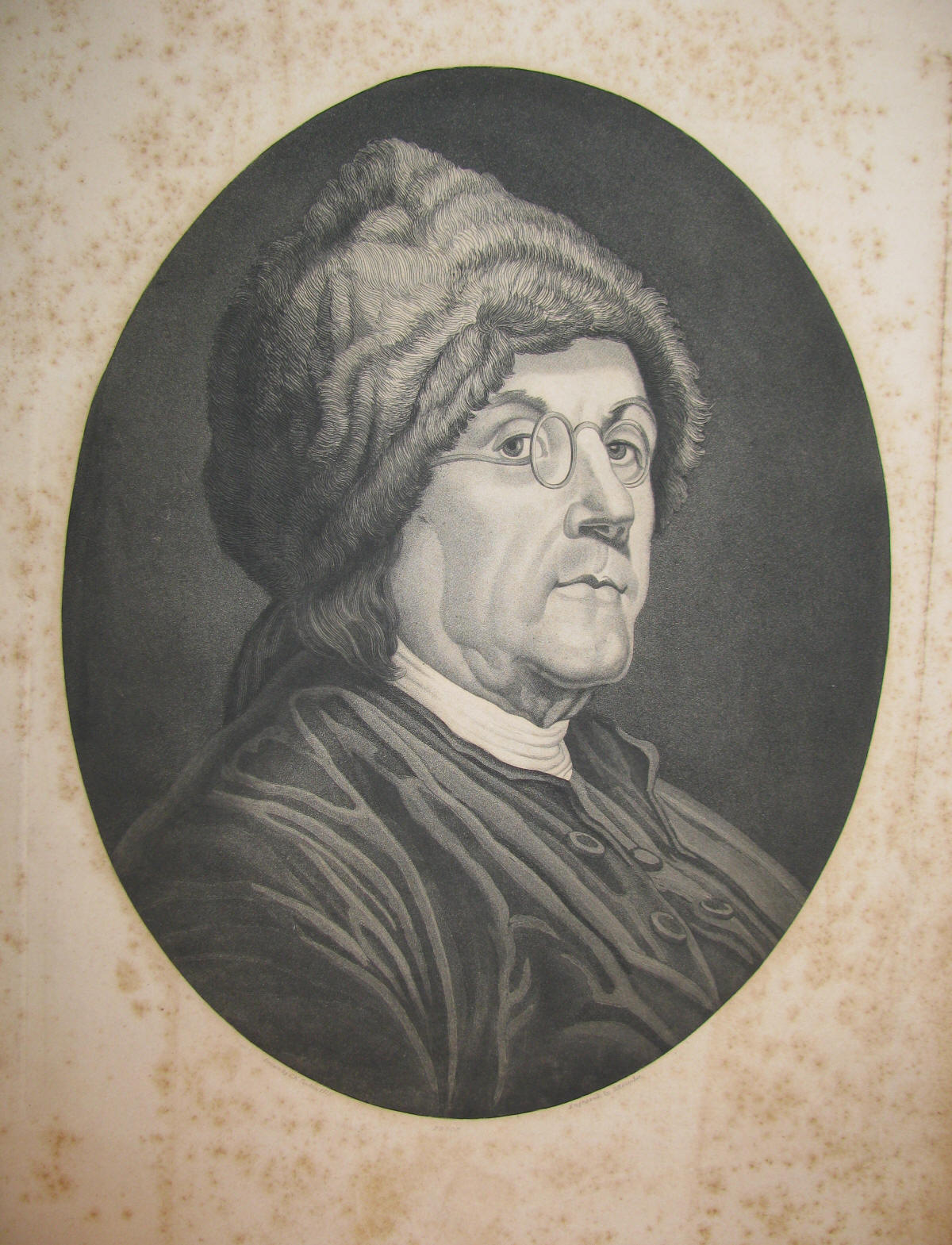 The
likeness of Benjamin Franklin, along with that of George
Washington, is arguably the most globally recognizable
image of an early American. Aside from his
presence on our currency, Franklin's persona as a
scientist, pragmatist, and leading figure on the world
stage in the 18th century has led to his image being
produced countless times over the ensuing centuries.
This fine engraving dates to the 19th century, and is
based on a famous 18th century by Charles-Nicolas
Cochin. During Franklin's visit to France at the
time of the American Revolution, Cochin drew Franklin
wearing his famous fur cap. The image was
immediately successful, delighting the French public and
capturing Franklin in a distinctly American manner, and
it has been widely reproduced in the decades and
centuries since. The
likeness of Benjamin Franklin, along with that of George
Washington, is arguably the most globally recognizable
image of an early American. Aside from his
presence on our currency, Franklin's persona as a
scientist, pragmatist, and leading figure on the world
stage in the 18th century has led to his image being
produced countless times over the ensuing centuries.
This fine engraving dates to the 19th century, and is
based on a famous 18th century by Charles-Nicolas
Cochin. During Franklin's visit to France at the
time of the American Revolution, Cochin drew Franklin
wearing his famous fur cap. The image was
immediately successful, delighting the French public and
capturing Franklin in a distinctly American manner, and
it has been widely reproduced in the decades and
centuries since.
Stephen H. Gimber (b. 1806, d. 1862) engraved this large
and expertly rendered portrait in the mid-1800s.
Although the engraving is not dated, Gimber was most
active in Philadelphia in the mid 1850s, and it's likely
that this work was produced during that time.
Gimber immigrated from England to the United States in
1828, first living in New York City and later moving to
Philadelphia, the city where Franklin lived for most of
his adult life. One of Gimber's earliest and best
known works is Emancipation. Glorious First of August
1834 celebrating the end of slavery in the British
West Indies. Although bookplate engravings of
Franklin are fairly common from the 19th century, large
engravings such as this, made for purchase as a portrait
unto themselves were much less common, and this
particular example is especially scarce. |

